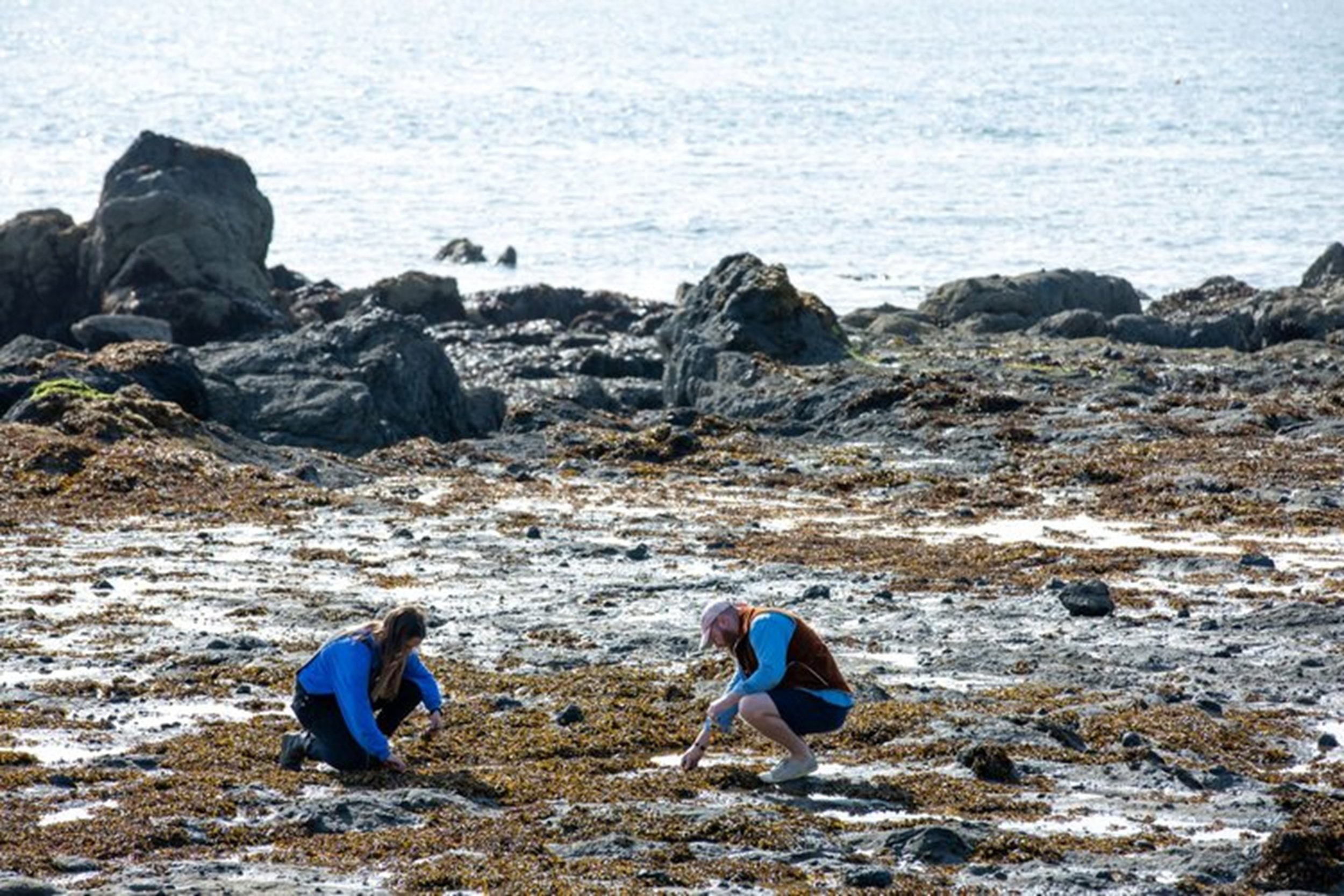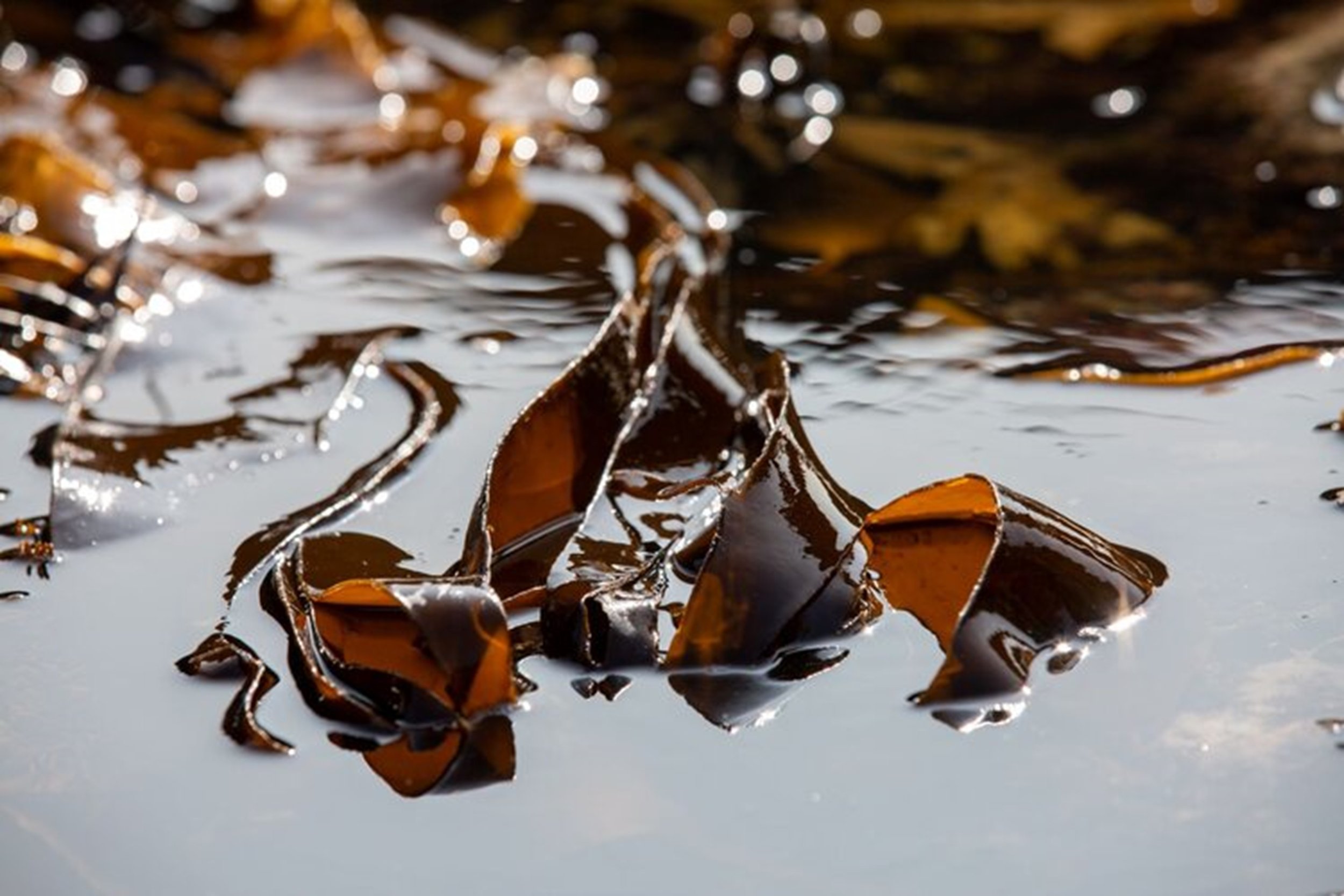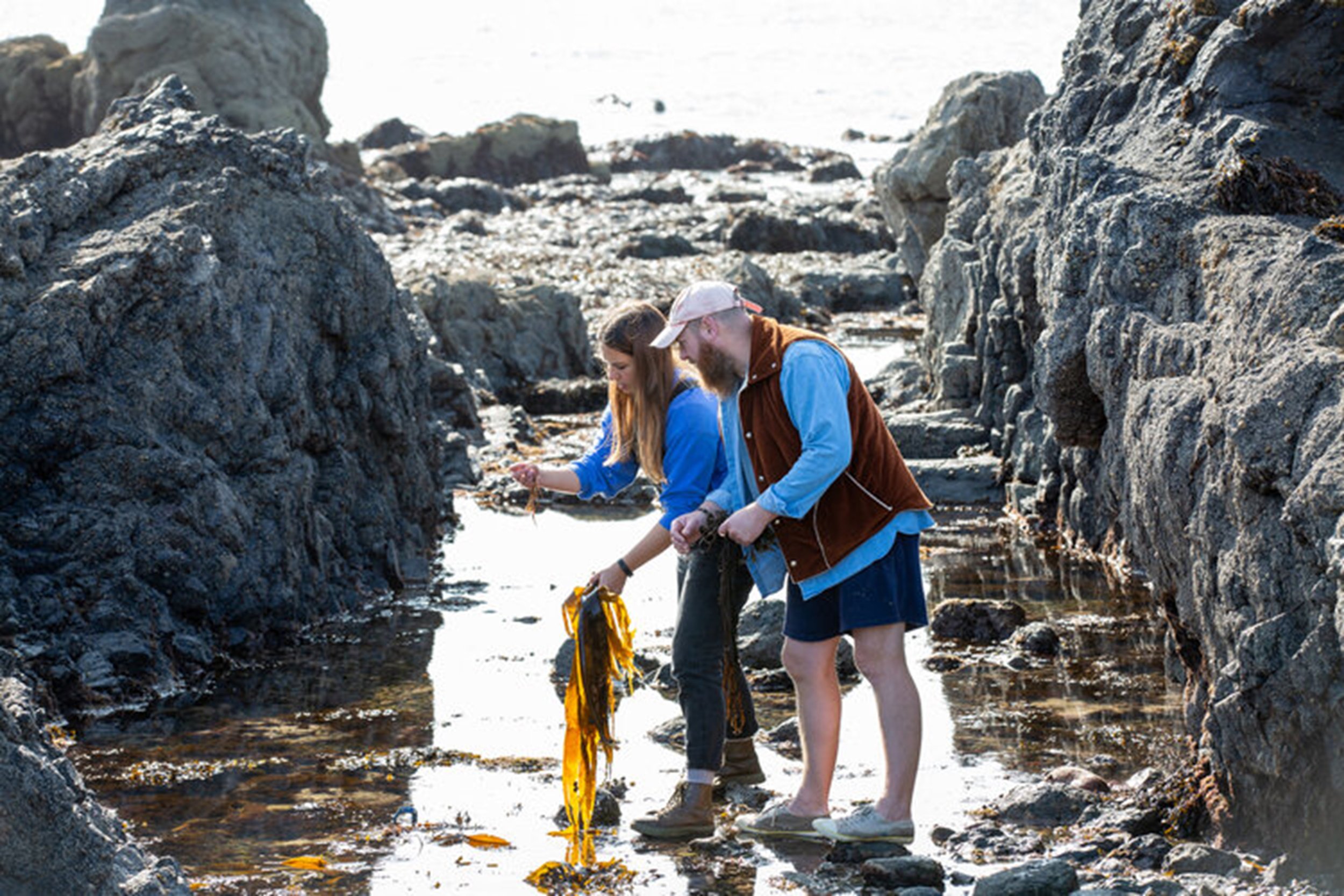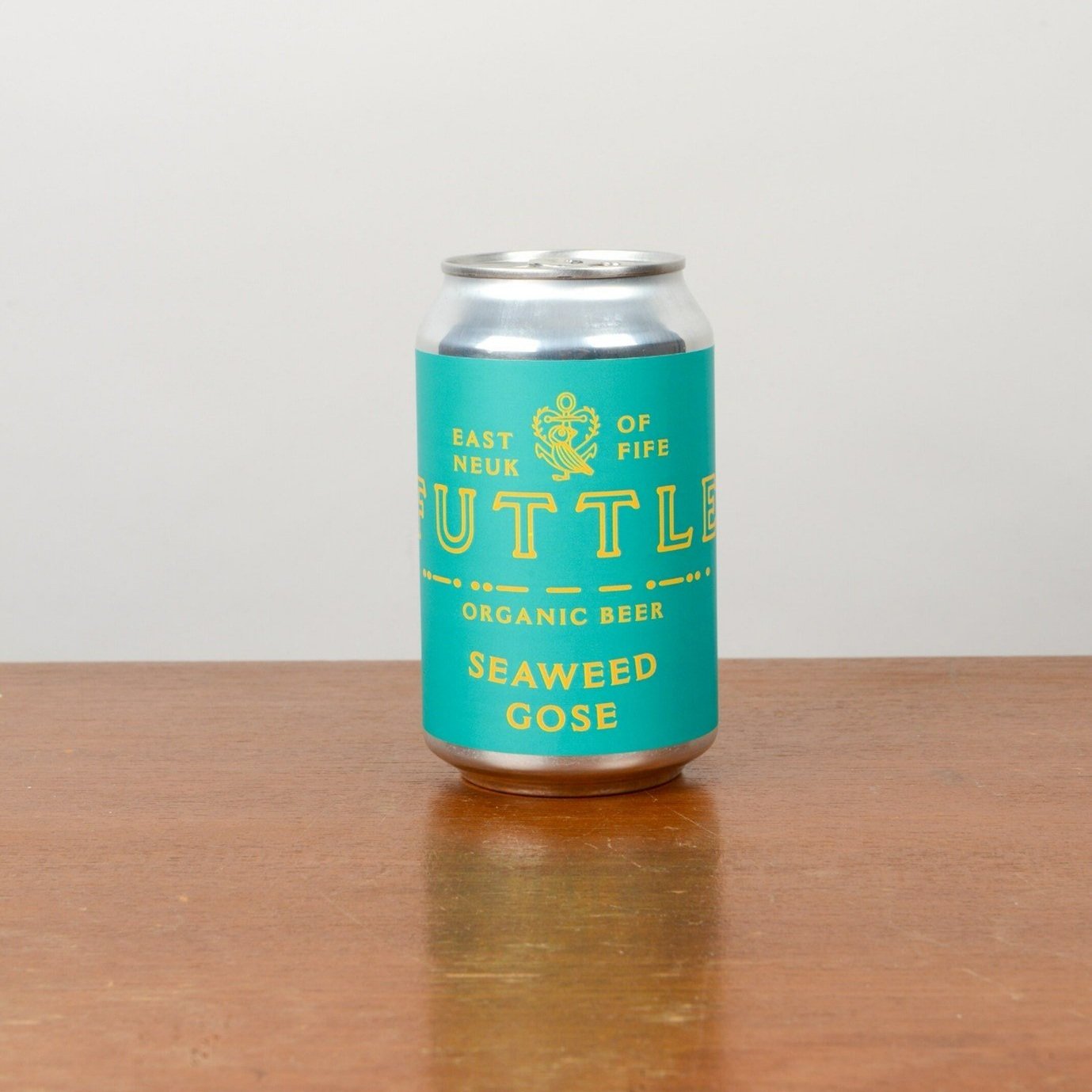Seaweed Hunters
By Lucy Hine
Stephen & me on the rocks in St Monans
Our seaweed explorations and experiments still feel very embryonic.
Although we have spent several years living, working and walking by the sea, cataloguing our seaweed discoveries and working out how to use different varieties in our beers and spirits, the universe of seaweed seems so unfathomably large, that (very happily) we know this means many more years of guddling about on the rocks with a bucket in our hands and the sun on our backs.
Although we are never far from the sea here in the UK, it’s incredible that seaweed no longer plays any kind of part in our diets. Historical Scottish, Welsh and Irish cookbooks are full of the stuff - soups, stews, bread and more. And it was not only essential in the kitchen, it was also used to make home remedies that alleviated things like colds, rheumatism and depression.
Historically Japan had a similar domestic reverence for seaweed. But unlike in this country, seaweed continues to play an incredibly important culinary, medical and environmental role in Japanese culture. People in Japan use over 20 species of seaweed in their everyday cooking which seems quite astounding to me.
It is known to reduce cholesterol, aid weight loss and provide essential vitamins and minerals. A superfood which is both abundant and delicious and yet most people in the UK will never taste it.
Not only does seaweed provide the key to a healthier, more delicious life, it looks like it might also provide solutions for major environmental problems, like global warming. Seaweed absorbs greenhouse gases, trapping carbon dioxide and converting it back into oxygen. The fastest growing seaweeds (like Sargassum), if responsibly harvested, can recover and regrow by around 15 metres a year.
Governments in other countries are investing heavily to harness the power of seaweed in an effort to unlock a greener, more sustainable future. But it seems as though for now, just as the appetite for seaweed has disappeared from British kitchens, so has the collective political imagination in Holyrood and Westminster when it comes to the environment.
Our vote would be in favour of seaweed, in case you were wondering. A largely untapped miracle species just below the surface of our seas and on our beaches, renewing itself and taking care of things quietly and unobtrusively.
A tangle of wracks
This month we are releasing a sour wheat beer made with organic whole grains - barley, wheat and oats - and local seaweed.
Here in the East Neuk, there are several sorts of seaweed that proliferate. One of those is bladderwrack, which is the one we've chosen for this beer. In our experience, bladderwrack adds lovely minerality to drinks without ever turning fishy, like some other common varieties.
We added the seaweed following the boil for seasoning and texture, and then soured the unhopped wort with lactobacillus before leaving the batch to ferment.
The beer spent a month conditioning in tank following fermentation, then another three months conditioning in can before it was ready to release. This beer is as natural as it gets - fully organic, unfiltered and unpasteurised.
Lemony sour and very refreshing, with a salty, mineral finish.
Organic Seaweed Gose, £36/ 12-pack (330ml cans, 4% alc./vol.).
Unfiltered, unpasteurised, can-conditioned. Suitable for vegans.
Available online here, or in the real-life shop at St Monans. Also to be found on the shelves of some of our favourite independent shops and bars. See the list here.






